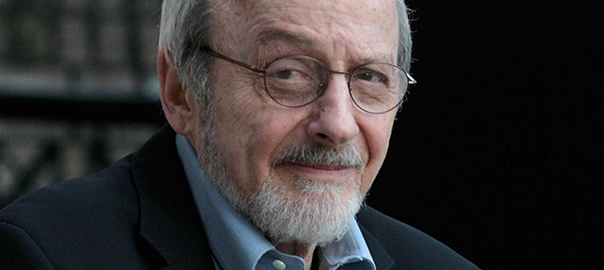Book Club: The Book of Daniel, by E.L. Doctorow

On Sunday, November 29 at 10:00 am, our Book Club meets to discuss The Book of Daniel, by E.L. Doctorow. Buy this book on Amazon and donate to BCC! more details
This historical novel by the recently deceased author is based on the life of Daniel Meeropol, son of Julius and Ethel Rosenberg who were executed in the early 1950s for spying for the Soviet Union. It was also a movie in the 1980s with Timothy Hutton.
The Book Club meets on the last Sunday of each month to discuss primarily LGBT Jewish fiction or non-fiction books and have brunch. Meetings take place in members’ homes and space is limited. For more information and to join, contact Larry at larrynath@aol.com Reservations are required.
The Book of Daniel
In “one of the dark coves of the Browsing Room” of the Columbia University Library. Daniel Lewin sits with his “Thinline felt tip marker, black” and confronts not lions, like his Old Testament namesake, nor the writing on the wall of Belshazzer’s palace, but the incorporeal beasts of his memory and the yet-to-be-written judgement of the American kingdom.
Supposedly working on his doctoral thesis, Daniel instead produces notes toward an autobiographical novel about his Old-Left parents, Paul and Rochelle Isaacson, who in the early 1950’s were electrocuted for passing atom-bomb secrets to the Russians, and his New-Left younger sister who in the late 1960’s died of a failure analysis” (the pun is apparently intended). And with the completion of “DANIEL’S BOOK: A Life Submitted in Partial Fulfillment of the Requirements for the Doctoral Degree in Social Biology, Gross Entomology, Women’s Anatomy, Children’s Cacophony, Arch Demonology, Eschatology, and Thermal Pollution,” its real author, E. L. Doctorow– whose two previous novels include a minor Western tour de force (“Welcome to Hard Times” and a wooden piece of science fiction (“Big as Life”)–has leaped into the first rank of contemporary American writers. For “The Book of Daniel” is among the more interesting novels to have appeared in the last two years–a book on politics that resonates.
Novelistic Jottings
One contemplates most novels based on controversial public happenings with a sinking heart: fictionalization tends to trivialize such events: the public record weighs like sandbags on the imagination. But Mr. Doctorow has turned such liabilities into assets. He freely acknowledges the looming presence of the Rosenberg Case by building a high- tension bridge between reality and fiction. His Daniel’s jottings are only intermittently novelistic in the conventional sense. They stutter back and forth between third-person and first-person narrative, as if Daniel were only tentatively trying out the role of a character in a story. They draw past and present, public and private, real and unreal events into a labyrinth of obsessive memories. They stumble into rockpiles of speculation on history (how did the Cold War get started?), into newspaper reportage (a New York Times reappraisal of the Isaacson Case 10 years after the execution), and heavy sociological tracts (the meaning of Disneyland).
Continue reading in the New York Times




